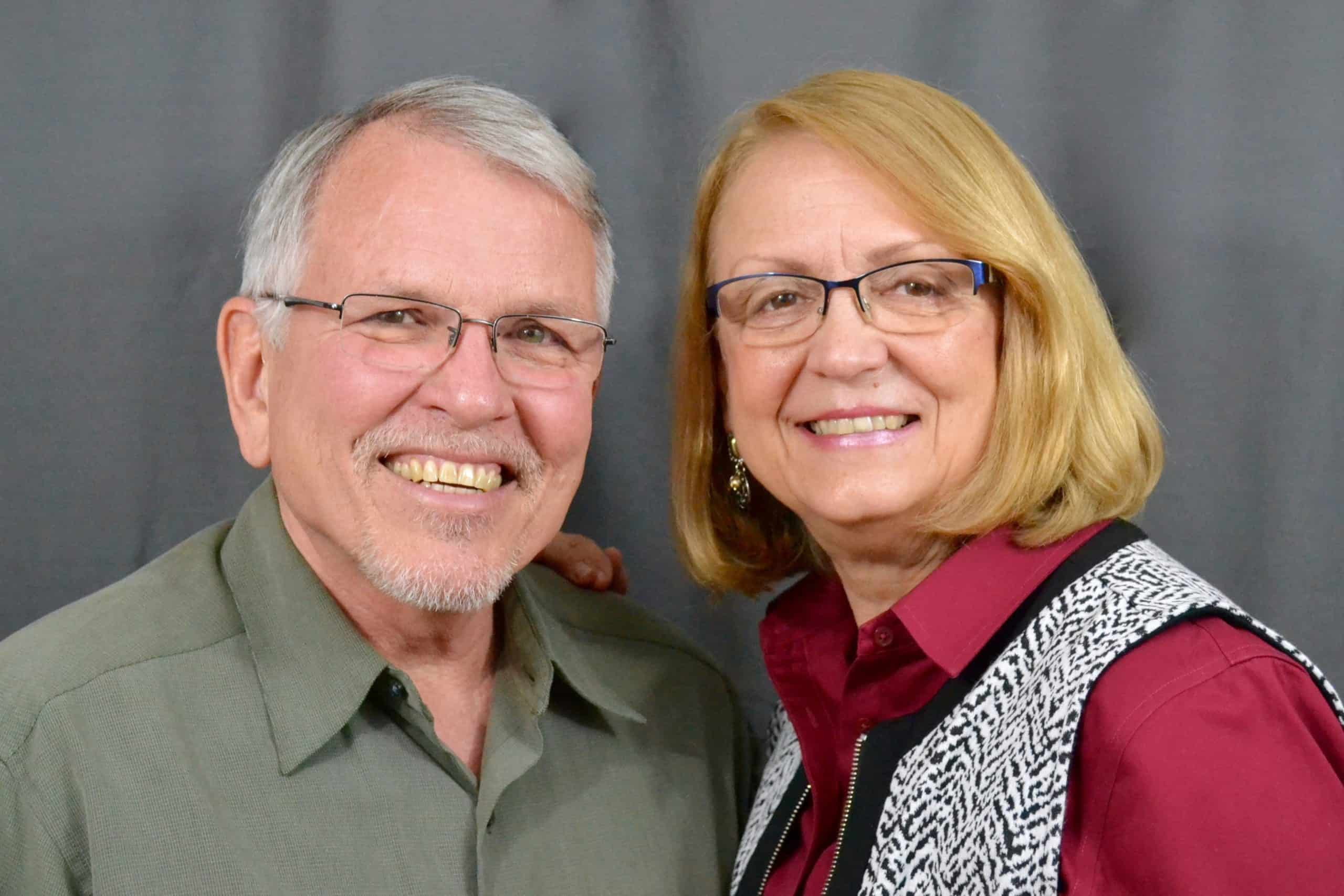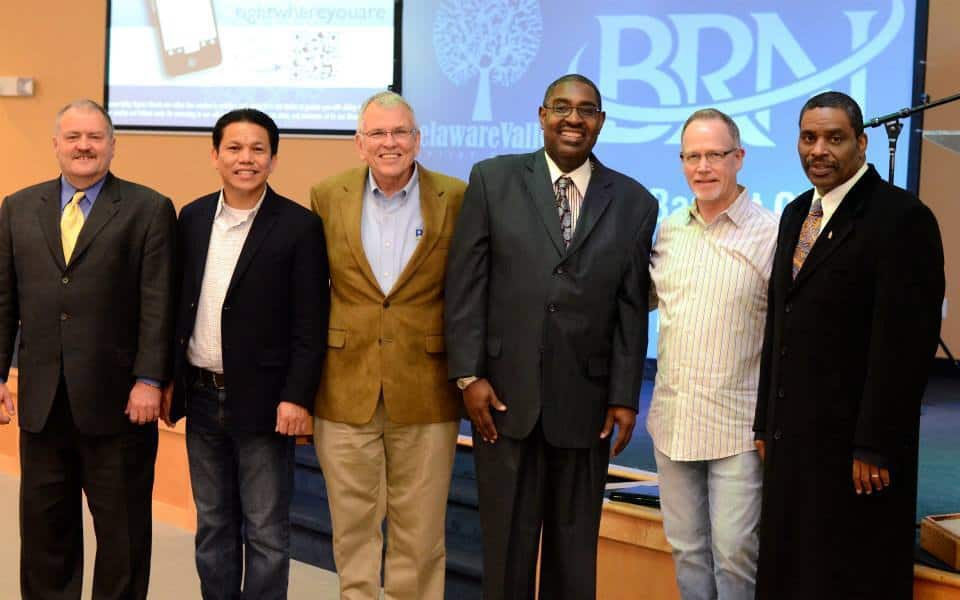YORK, Pennsylvania (BRN) — What started merely as an interim position, a temporary job that was meant to be filled by someone else, soon became a beloved, long-term calling for former Baptist Resource Network Executive Director Dr. David Waltz.
“The board asked me if I would be the interim executive director, that was in the Fall of ’92, [and] as I served as the interim, I began to feel like maybe God…[well] I felt the nudging and I felt like my gifts fit it,” said Waltz.
At the time, the BRN was known as the Baptist Convention of Pennsylvania and South Jersey (BCPSJ) and Waltz was serving as the Director of Evangelism and Brotherhood, a position he never expected to be offered.
“Well, that’s kind of a miraculous story, and almost, to me, quite unexpected. I was very, very happy as a pastor in Williamsport…the church was growing, we had great fellowship…I mean things were just so exciting.”

Waltz continued: “Part of the surprise, in that move, [was] I felt like it was really important for me, as a pastor, and for our church, to do what we thought was the biblical right thing to do, not just what was tradition. Some of the decisions we had made I knew would be controversial [such as placing women in leadership] and I felt, when we made those decisions, no way they would consider me for a state convention post.”
After “much prayer and thought,” Waltz agreed to take on the director position, which ultimately led to an even more surprising role.
In 1993, Waltz officially became the BCPSJ Executive Director-Treasurer.
“The administrative committee felt like I was the one and recommended me to the board, and the board questioned me at length,” said Waltz.
“It ended up that they called me as the executive director unanimously…I think there was one abstention out of the full board. ”
During his 23 years as executive director, Waltz was instrumental in advancing the convention’s finances, starting a volunteer house, leading the convention to become a resource network, and encouraging diversity.
“One of the first challenges I faced was that we didn’t have enough money. We were spending more money than was coming in [and] our budget was more than our resources were… so there was an extreme sense of urgency to face the budgetary crisis,” shared Waltz.
“We also had some vacancies that we just didn’t fill because we didn’t have the resources right then to fill them, but I realized that – I guess part of this came from being a pastor of a church – that there were a lot of things volunteers could do if you would give them the opportunity and open up the door for that to happen.”
In 1994, an opportunity arose for the convention to purchase a volunteer house, and despite financial concerns, they did just that.
“I explained how I felt that, [with] a project like that, churches and people would be willing to give over and above the regular gifts, because it’s something tangible they could see and catch the vision for. Secondly, once it was paid for, the volunteers that could come from outside of the state, stay there and help us would more than pay any expenses or costs that it was to the convention,” said Waltz.
Waltz also shared how the volunteer house strengthened the faith of his colleagues and the congregations of the BCPSJ.
“The transformation that came just by, in a sense, risk-taking, taking steps of faith for our board. That was a great step of faith they took, and our people…and, yet, to see God provide and see the results of that when you’re willing to trust Him.”
Later in his career as executive director, Waltz tackled the transition of the BCPSJ becoming a resource network.
“The change from an Associational State Convention model to a Baptist Resource Network regional model was a big change, and we didn’t have a model to go by, cause no other state convention had done it. We were the first.”
Waltz continued: “I tend to forget the negative parts, but there was a lot of opposition to that and a lot of questions, and I understand that. Change is really hard, but society was changing [and] we needed to make changes.”
As the BCPSJ shifted to become the BRN, the organization also moved toward a greater acceptance of diversity.

“One of the things that really burdened me, when I became executive director, [was] though we had diversity in our churches, we didn’t have that diversity in our staff, nor on our board,” said Waltz.
Waltz explained that through his years of service, he saw the network’s staff and board grow in diversity and love for one another.
“By the time I retired, I was thrilled. Our staff and our board looked like our churches, in terms of numbers, racial backgrounds and ethnic backgrounds. Even on our board, it wasn’t just a matter of having them at the table, which was important, but it was thrilling to me when it came to the point where they were at the head of the table,” said Waltz.
In 2016, Waltz retired from the BRN and his executive post. Through many years of challenging decisions, rich relationships, and God-given growth, Waltz found his time as executive director “extremely” rewarding.
“When I became executive director, I had so much to learn and so many things that I didn’t know about other cultures, and as I look back…I’m just so grateful for the transformation that came in my own life,” said Waltz.
“I’m grateful for all I’ve learned, I’m grateful for all I gained [and] the opportunities that I had…I found the time serving at BRN extremely fulfilling [and] I truly loved being the executive director.”
Listen to the podcast interview:
The “50 Stories of Transformation” series, told in honor of the Baptist Resource Network’s 50th anniversary, highlights the many ways God has moved throughout Pennsylvania, South Jersey and beyond. Your generous support of the Cooperative Program makes this ministry possible and fuels evangelism and outreach in our local churches and all over the world! Thank you!